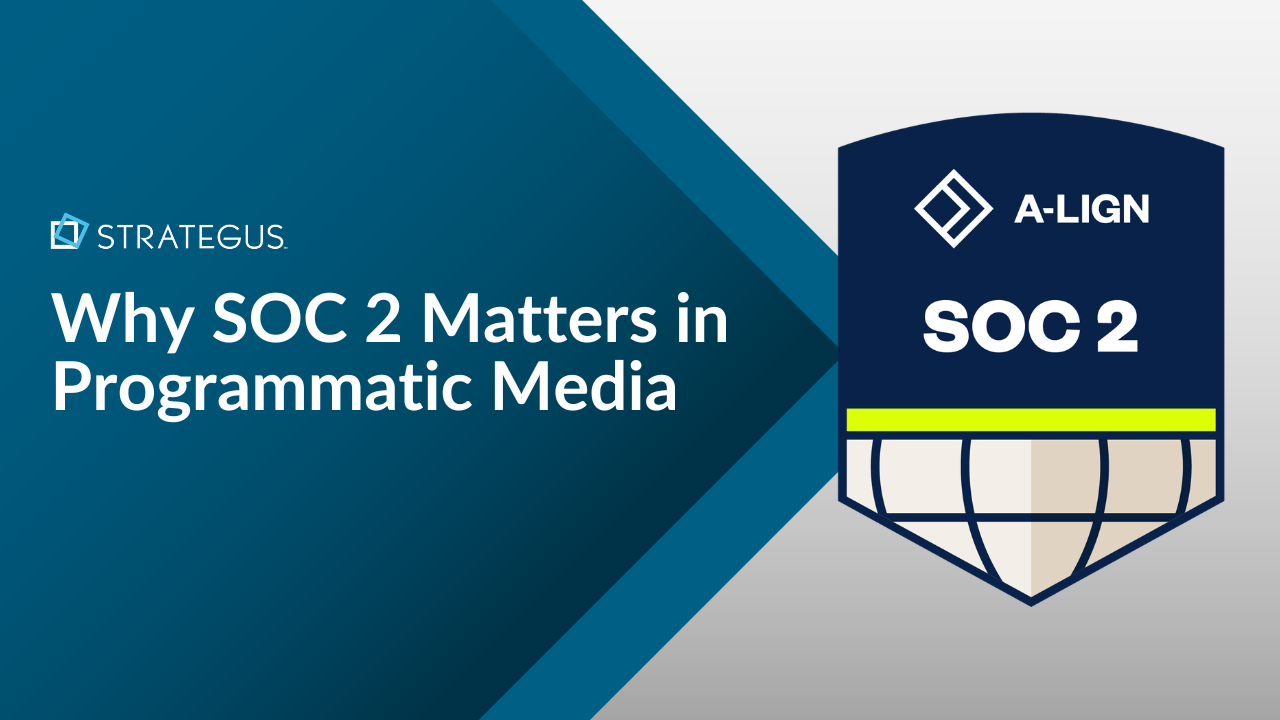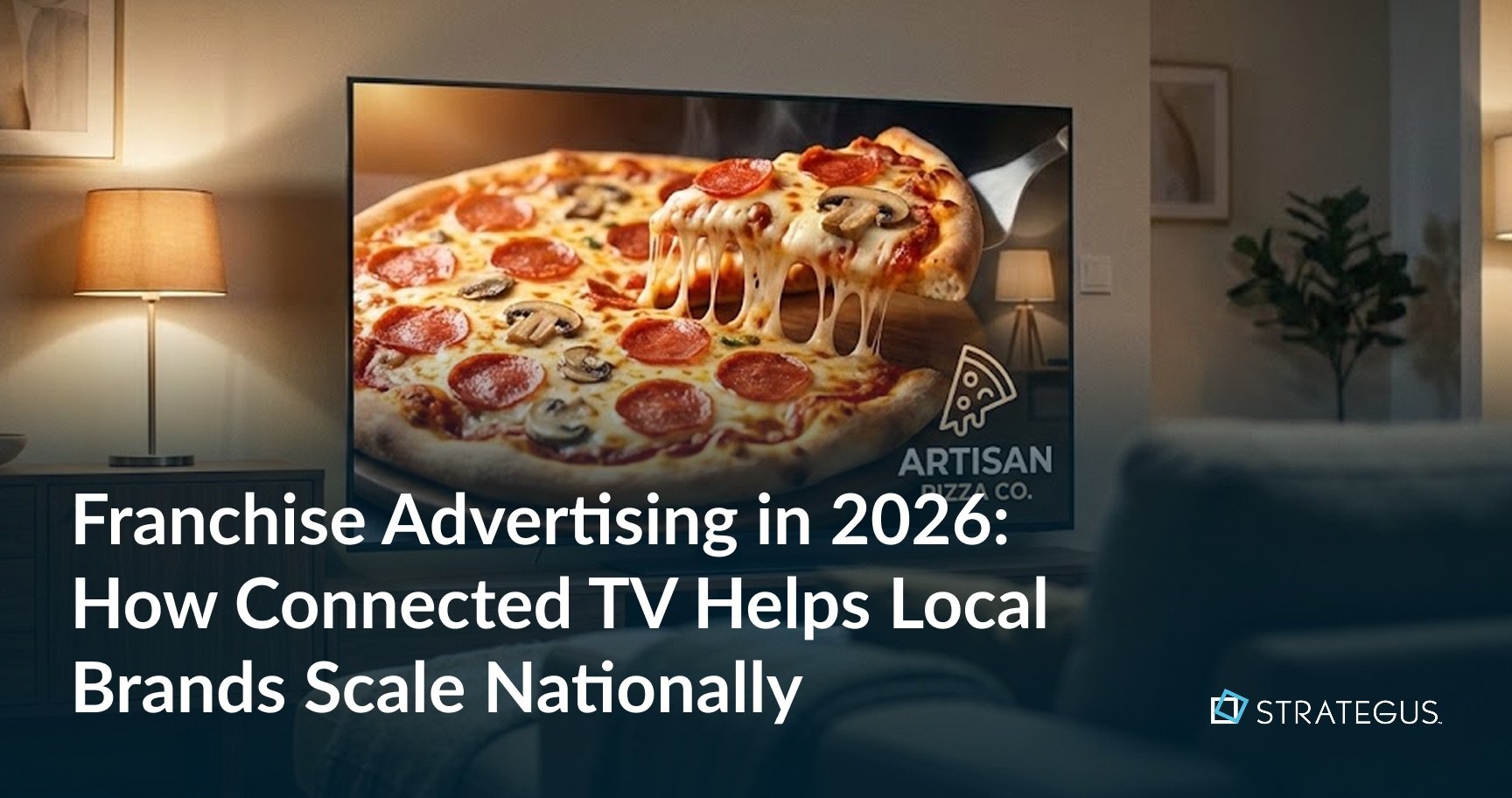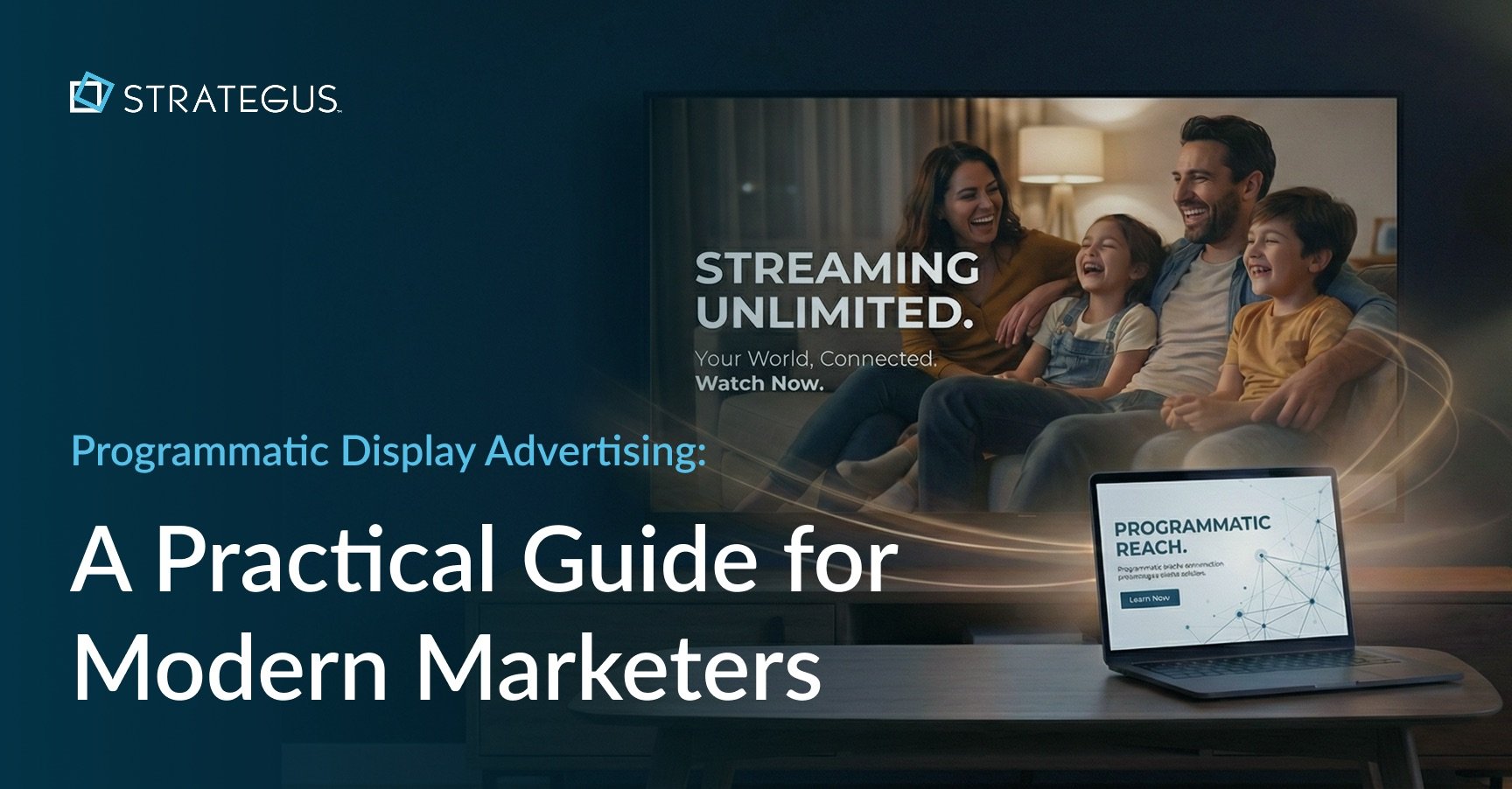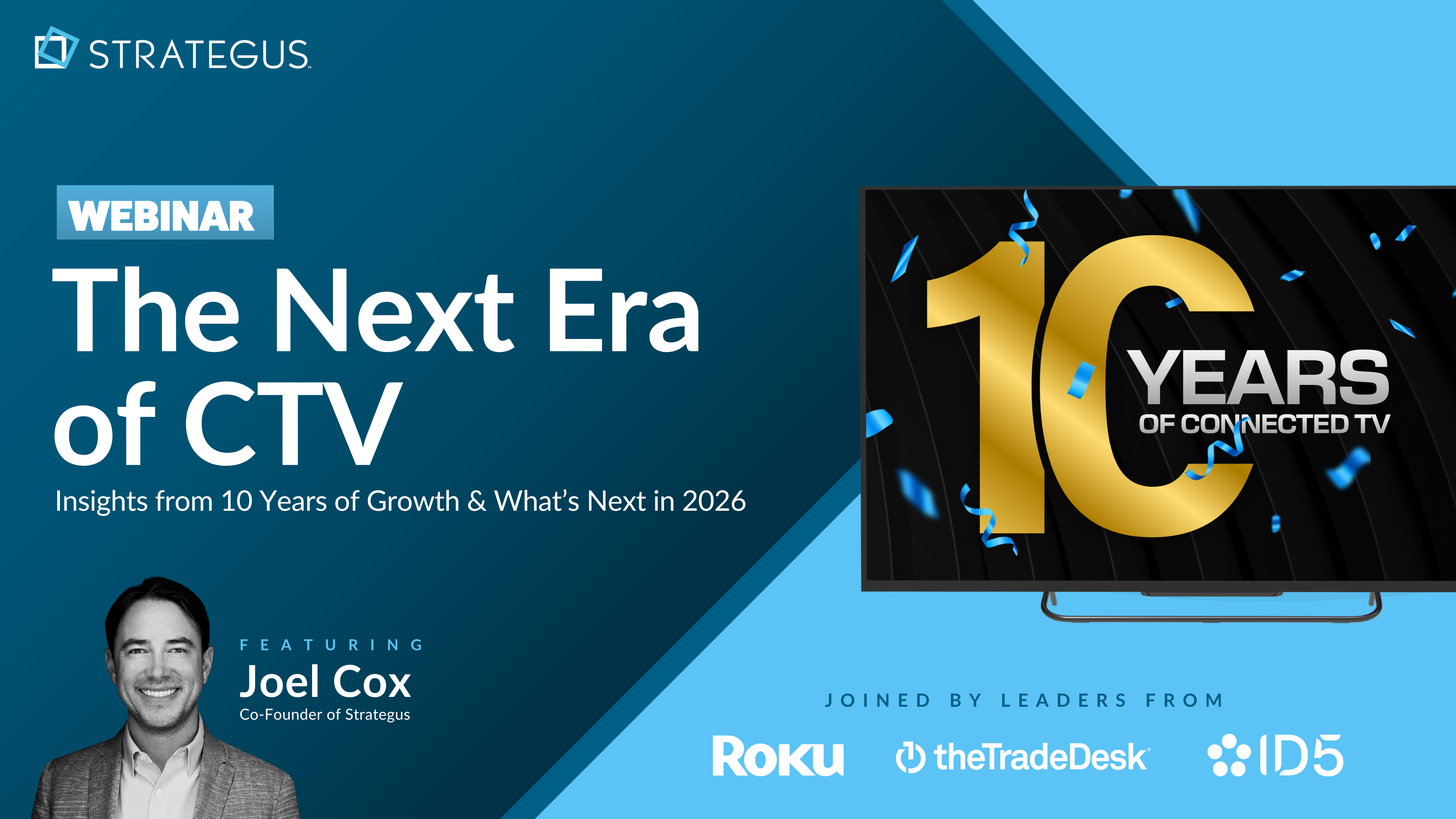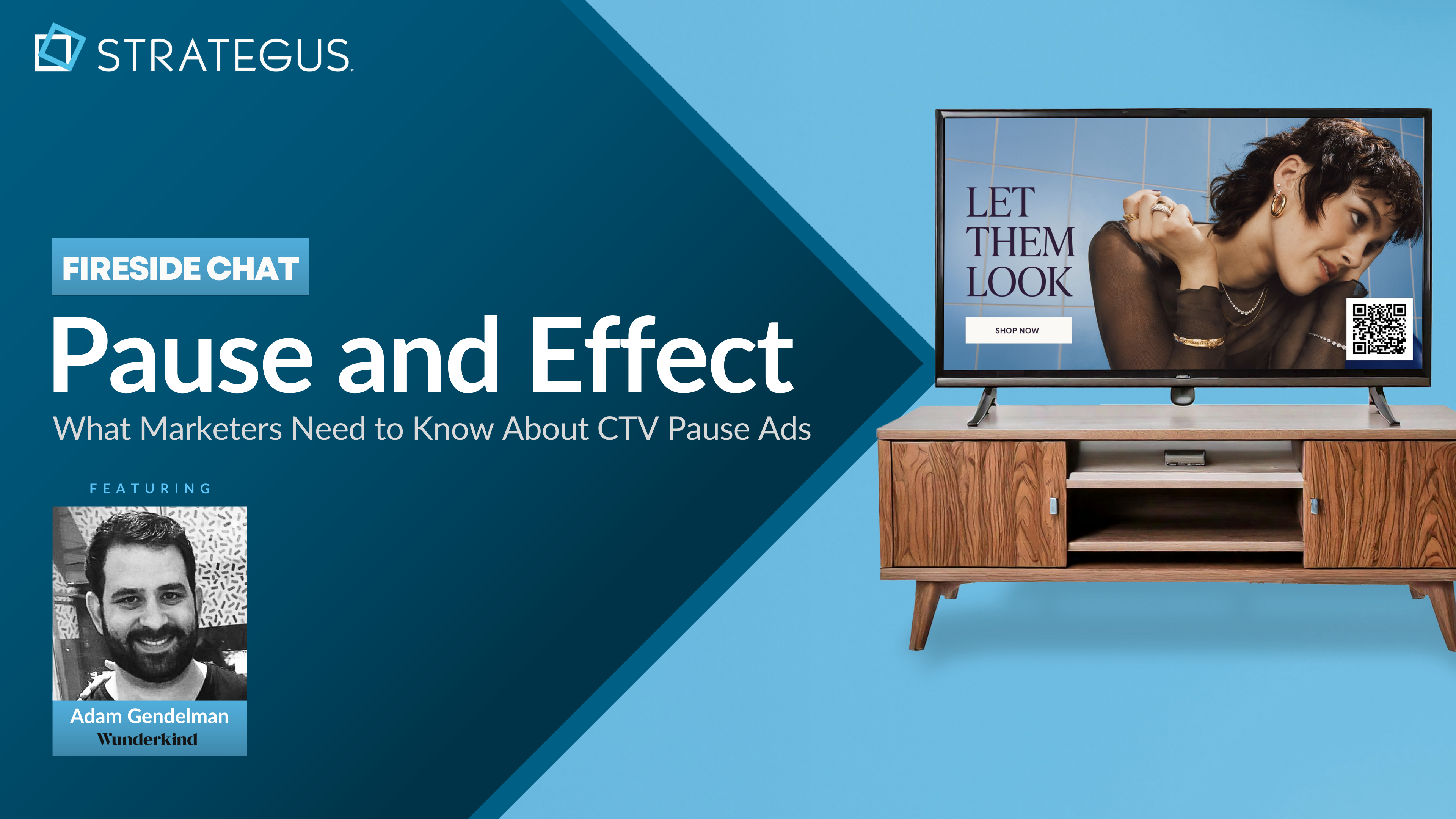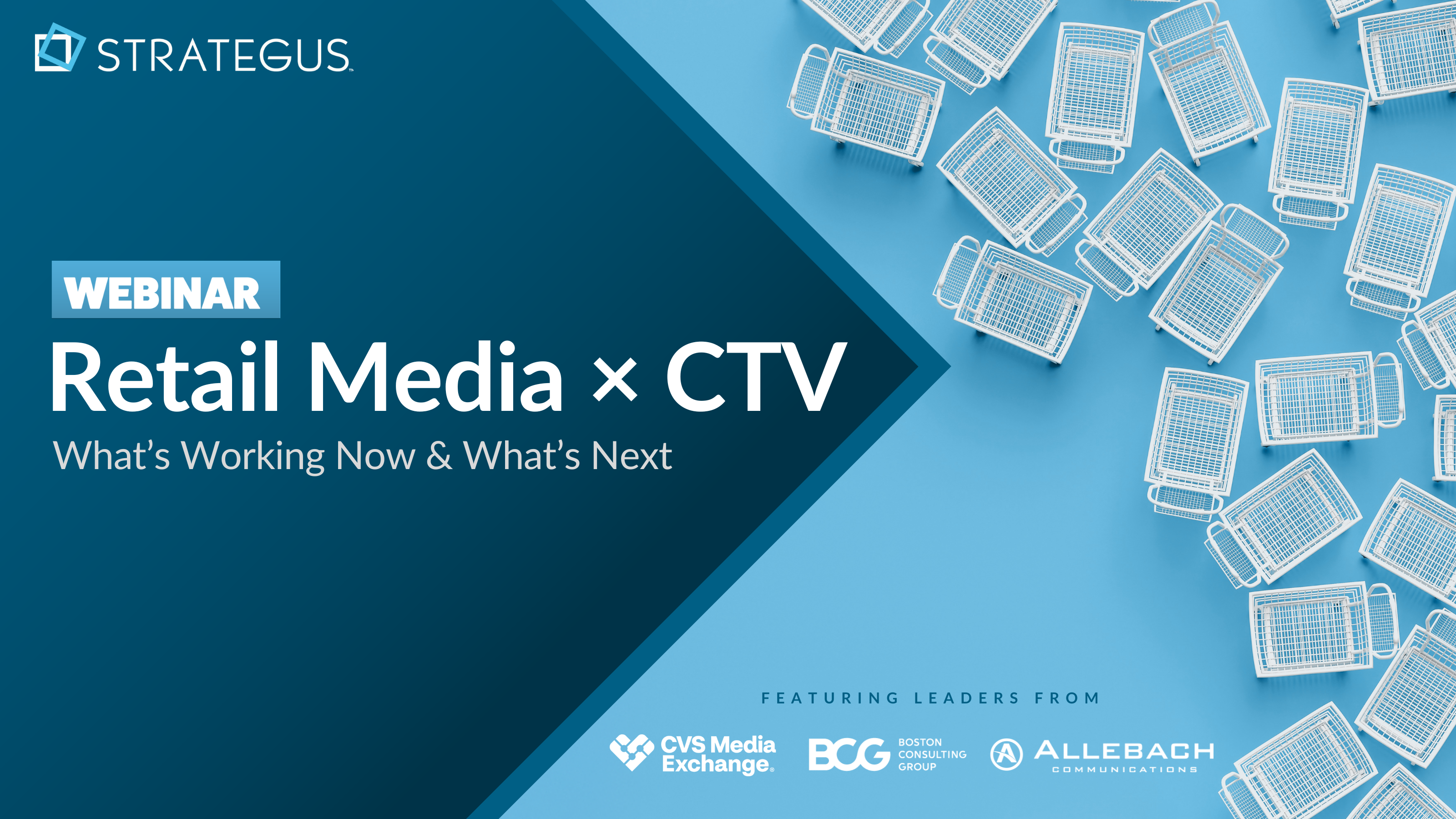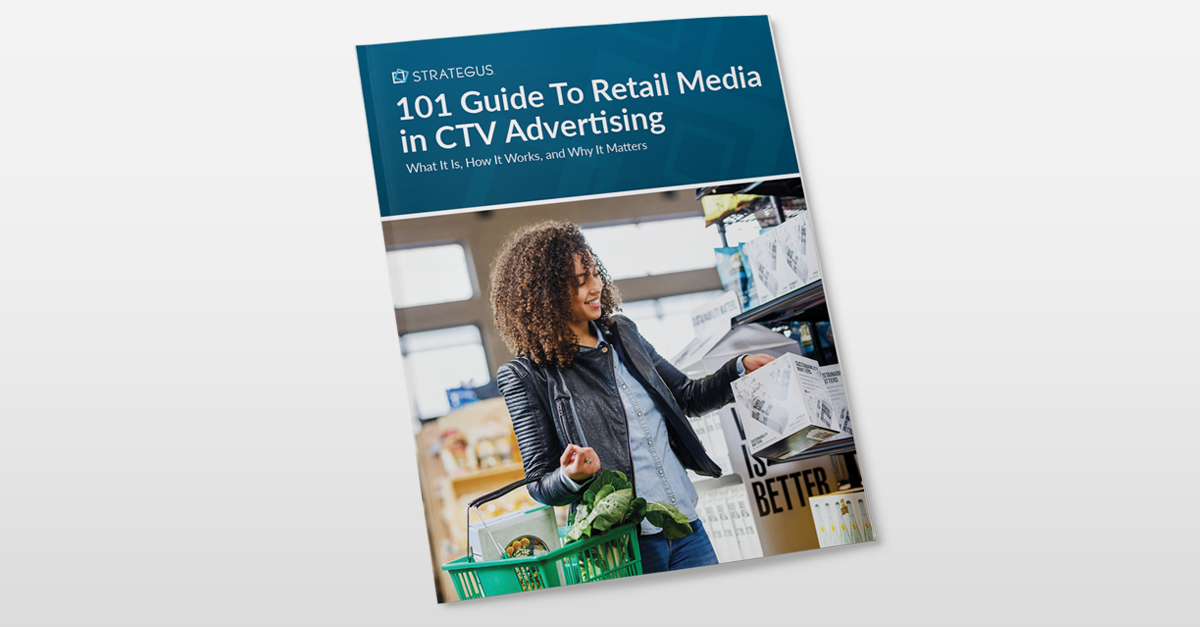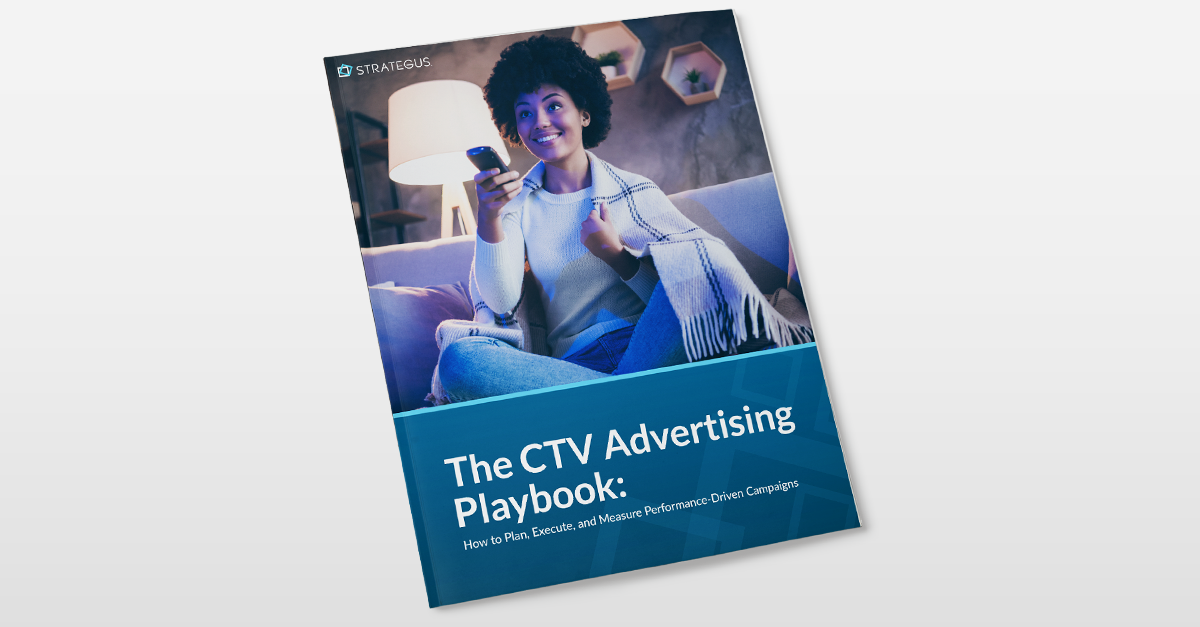- Home
- Company News
- Ad-Tech 2020: 6 Trends BD Pros and Sales Teams Need To Know
Ad-Tech 2020: 6 Trends BD Pros and Sales Teams Need To Know
 Andy Dixon
Andy Dixon
4 minutes read
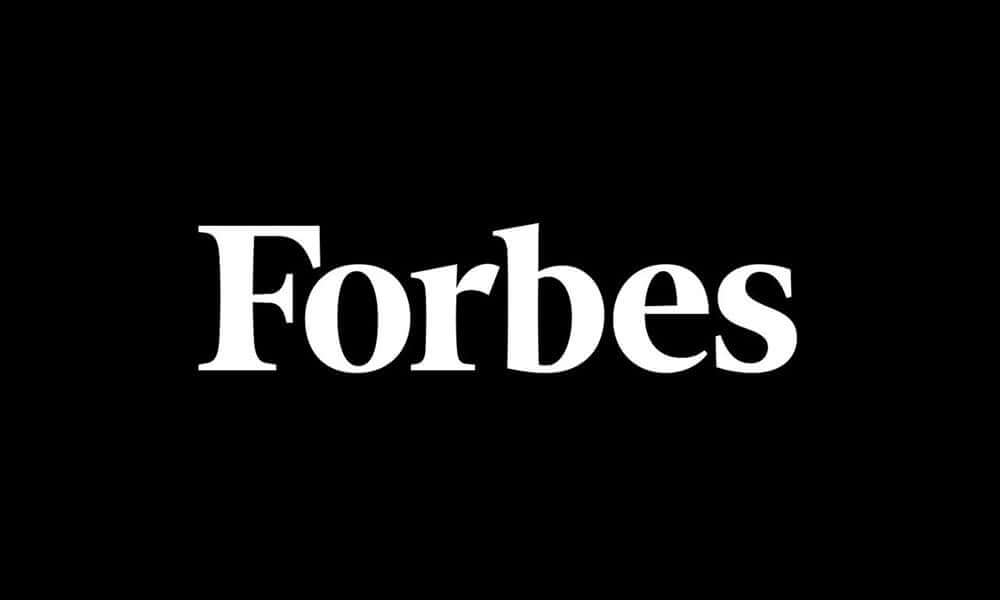

The last decade saw the advertising industry’s most dramatic evolution since the advent of television in the 1950s, when everyone watched the same shows at the same times in the same place (their living rooms), and Mad Men made a killing creating big-budget car, cigarette and soda ads for the masses.
Today, viewers are streaming digital content over the internet and watching what they want, when they want and where they want, while advertisers automate media buys and micro-target individual consumers, selling them what they actually want, and what they were just looking for. How did they do that?
Even if you’re not in media or marketing, everyone involved in business development and sales needs to understand the implications of adtech.
1. Data-Driven Targeting
Yes, advertisers are following us. Even with the inevitable demise of the cookie, cross-device identity graphs and hyperlocal location data help advertisers find and analyze consumers. It can be a little unsettling, but people now realize that the ads they see are actually relevant to them. It’s no longer just about “Men, 18-34, who watch Monday Night Football.” It’s about a 32-year-old man who follows women’s tennis, watches The Walking Dead, is going fishing on Saturday, and is already in the market for a red pickup truck. It’s about you and your data, not just a statistical dartboard targeting people that are merely like you, watching what you might watch.
Audience targeting (not content targeting) is the new moral imperative. Serving meaningful advertising to flesh-and-blood individuals (the audience) instead of targeting a general demographic watching a TV show (the content) is the wave of the future. That this positive marketing revolution should be suborned to the ad-free, subscription-based content fad seems ironic.
2. Ad-Supported Vs. Subscription Models
Following Netflix, big players like Disney, Apple and Amazon are jumping on the paid-subscription bandwagon. There are hybrids like Roku and Hulu, but advertisers are getting squeezed out of these walled gardens at a time when data-driven audience targeting heralds a renaissance in serving relevant ads to the right people.
With multiple subscriptions required for all the streaming options, subscription fatigue is very real. The pay-as-you-go model won’t work for everyone, so expect a viewership shakeout. Research shows that viewers only pay for an average of 2.8 subscriptions.
3. Digital Streaming
All these new channels are distributed over broadband internet. What of cable and satellite? Last year, viewers cut the cord at the rate of seven every minute. But don’t expect basic cable service to just dry up and blow away, and don’t expect advertising to disappear anytime soon. It shouldn’t; informed consumers are smart consumers.
Will the digital streaming giants sustain financial expectations? Wall Street and corporate overlords will eventually prioritize profitability over subscriber growth. When that happens, which of the paid subscription streaming giants will be left standing? Viewers who lose patience with creeping fees and inconvenient channel browsing may not be there for the duration as the big players pay back the mega-billions already invested in future ad-free programming. User experience always trumps brand desire.
4. Programmatic
With all the data gathering and location-based targeting, math is winning out. Spending on real-time, automated “programmatic” bidding for digital advertising inventory topped $100 billion last year. Much OTT/CTV advertising (over-the-top digital delivery over internet-connected television) is now bought this way.
Algorithms based on the data-driven buy- and sell-side platforms are determining what ads get served, where, and how. It’s not so much ad agency media buyers poring over Nielsen ratings and cutting deals with the networks anymore. Smart agencies are using new tools and adding value—not by offering everything but the kitchen sink like the Mad Men did, but by specializing and knowing the options.
New technology tends to democratize everything. Adtech is for everyone, from national brands to moms and pops.
5. Privacy
Data giants are tracking digital exhaust from our phones, watches, tablets, computers, even cars. Marketers are leveraging this exhaust to inform and optimize their strategy. Most of the resulting messages we receive are benign and relevant. But, by voluntarily opting in with technology, we are trading our privacy for convenience. We become the product when someone monetizes our “private” data. That toothpaste isn’t going back in the tube, so crying foul now seems lacking in personal responsibility.
But none of this makes it OK for criminals to steal our stuff. Until legislation changes, Facebook and Google aren't yet criminals, but they're responsible for the vast majority of data misuse. It's not OK for the organizations we trust with our data to weaponize it in nefarious and unethical manners (Facebook and Cambridge Analytica, anyone?) The EU’s sweeping GDPR regulations went into effect in 2018, and the California Consumer Privacy Act in 2020. Companies must develop transparent data consent policies, and the brain damage of handling California customers’ data differently than, say, Florida, will compel sellers to self-comply with CCPA rules across the country. Other states will likely adopt similar privacy laws, forcing agencies and sales teams to adjust to a nationwide mosaic of regulations.
It’s a murky mess, but if we’re going to be following people around and tracking their data, it’s up to all marketing professionals to respect privacy and keep things hyper-relevant for our customers if we want to earn and keep their trust.
6. Math And Metrics
Automation is taking over for the gut instincts that drove marketing over the last century. The trends are pushing complex metrics and KPIs to the fore, which will be felt throughout all disciplines of business development and sales.
Adtech is nowhere close to market maturity. There’s no turning back on how the world has changed and will continue to when it comes to reaching customers, closing sales and measuring how it all gets done.

Andy Dixon is a seasoned Content Writing Specialist at Strategus, renowned for his expertise in creating engaging and impactful digital content. With over a decade of experience in content creation, Andy has honed his skills in a variety of niches, ranging from technology and marketing to education.
Strategus is a managed services connected TV(CTV) advertising agency with over 60,000+ campaigns delivered. Find out how our experts can extend your team and drive the result that matter most.
Talk to an Expert
Seeking a Custom CTV Strategy That Delivers?
What to read next

Strategus Celebrates Eighth Appearance on the Inc. 5000 List
We’re thrilled to share that Strategus has once again earned a place on the Inc. 5000 list of the fastest-growing private companies in America — our ...
2 minutes read
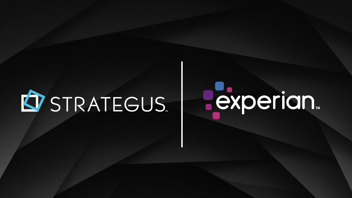
Strategus Launches SalesLink for Auto: First-of-Its-Kind CTV Attribution Solution Linking Ad Exposure to Real-World Outcomes
Collaboration with Experian will help auto advertisers assess effectiveness of CTV campaigns DENVER, CO – July 28, 2025 — Strategus, a leader in...
4 minutes read

Strategus Named One of Inc.’s Best Workplaces for 2025
DENVER, CO – June 17, 2025 — Strategus, the leader in fully managed programmatic CTV advertising, has been recognized by Inc. Magazine as one of its...
2 minutes read

Strategus Launches First-of-its-Kind AI-Powered Social Signal CTV Targeting Powered by consumr.ai
DENVER, May 19, 2025 (GLOBE NEWSWIRE) -- Strategus, a pioneer in data-driven Connected TV (CTV) advertising, today announced the launch of its...
3 minutes read



